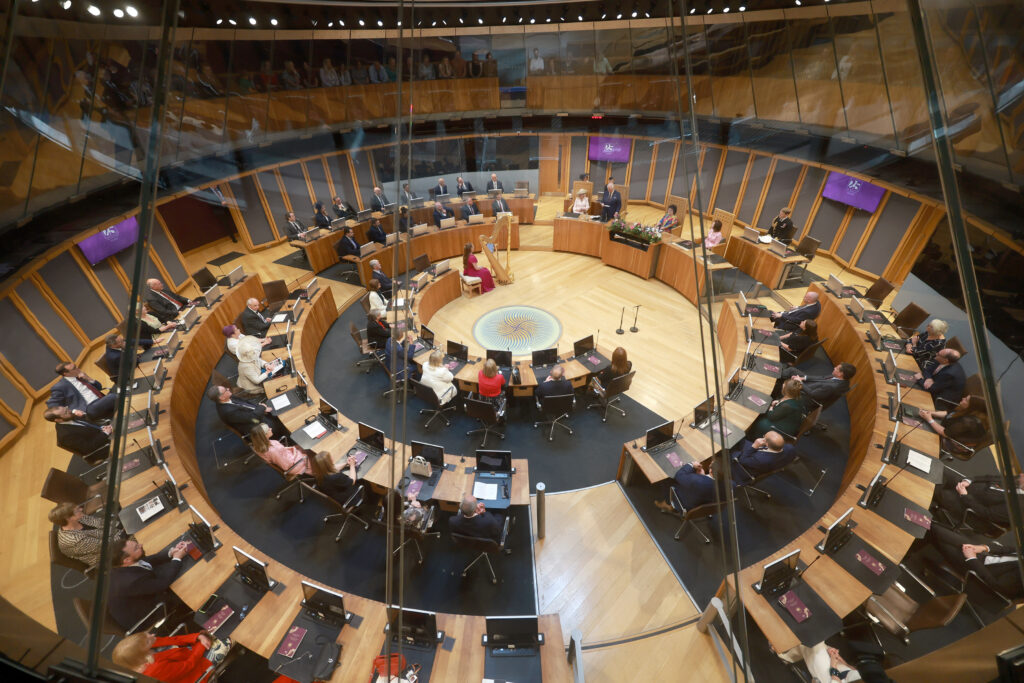Senedd Makes Decision on Puberty Blockers

Recently, decisions have been made around the topic of puberty blockers for young people in Wales. A new law makes it harder for young people under 18 to get access to these drugs.
What are puberty blockers?
Puberty blockers are medications that can pause the body’s natural hormone production. This can help reduce the physical changes of puberty, such as developing breasts, facial hair, or deepening of the voice.
These drugs are sometimes used by transgender and gender non-conforming young people. They can provide relief from gender dysphoria, which is the distress a person feels when their gender identity does not match the sex they were assigned at birth.
There are concerns that we don’t fully understand the long-term side effects of puberty blockers. They could potentially slow down development, affect fertility, and weaken bones. This uncertainty, mixed with the complex nature of gender identity, makes the use of puberty blockers a controversial topic.
The debate
There are different opinions about puberty blockers.
Positives: They help young people feel better about themselves and improve their mental health.
Negatives: We don’t fully understand the side effects and young people might regret taking them later on.
Recent changes in the law
In 2020, the Cass Review made recommendations about the care of young people with gender dysphoria, including the use of puberty blockers. However, concerns were raised about the potential risks of these medications, particularly about their long-term effects.
To address these concerns, the UK government introduced emergency legislation in May 2024 to limit access to puberty blockers for under 18’s in Wales and England.
In November 2024, the Senedd voted on the issue of puberty blockers because it is a devolved matter. This means that the Welsh Government has the power to make its own laws on certain issues, including healthcare.
They decided to stick to the new rules that limit access to puberty blockers, even though some people disagree with them.
How this will affect you
The new rules mostly affect young people who haven’t started taking puberty blockers yet. While they don’t ban puberty blockers completely, the law makes it much harder to get them.
For some transgender young people, it may delay their transition, causing more distress and anxiety. Others may feel isolated and unsupported, leading to mental health issues. Some young people may seek treatment from unregulated sources. This can be dangerous as you don’t know exactly what you are getting.
For others, it can offer time and space to think about whether they wish to begin medical treatments that may have a long-term impact on their health.
Getting support
If you’re a young person affected by these changes, it’s important to remember that you’re not alone!
Talking to someone you trust, such as a family member, friend, or youth worker, can be a great way to express your feelings and get support. Sometimes talking can feel like a huge weight lifted from your shoulders.
Joining online or local support groups can connect you with others who understand your experiences and feelings. It can help with feelings of acceptance, understanding and isolation.
Practising self-care techniques like mindfulness, yoga, or deep breathing can help manage stress. Engaging in hobbies and interests, as well as maintaining a healthy lifestyle, can also help with well-being.
If you need professional help, consider consulting a gender identity clinic or your GP.
What happens next?
This is a complex and rapidly evolving matter. The situation may change in the future as further research is conducted and new evidence emerges.
In the meantime, Meic can support children and young people with information, advice, and advocacy about these changes in law, or anything else that’s on their mind. The helpline is open to all children and young people under 25 across Wales from 8am to midnight every day.
Meic also has Getting Help pages filled with blogs and links to services that can help with a range of issues. Check out the Gender Identity and Self Care and Coping Mechanisms pages.






















